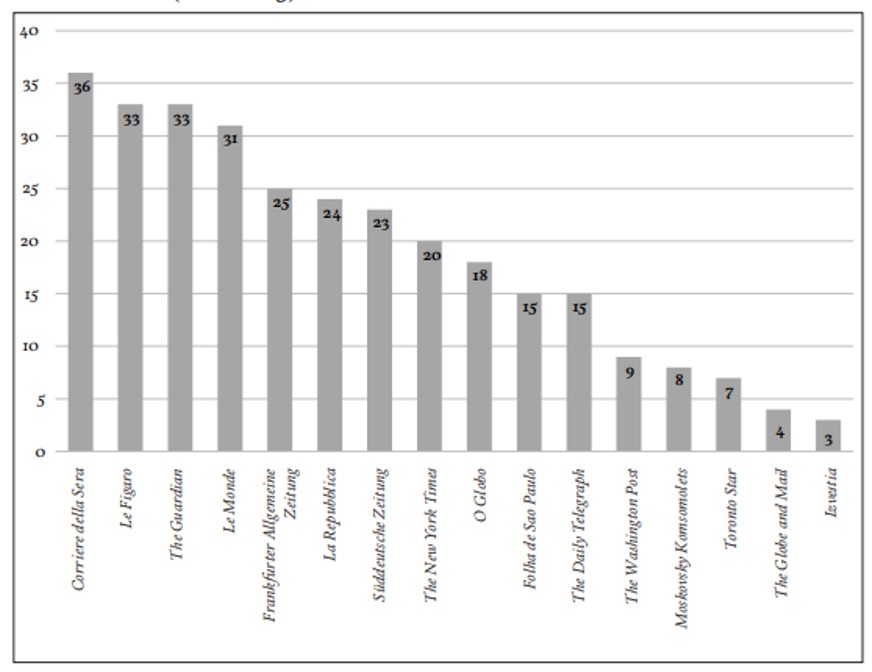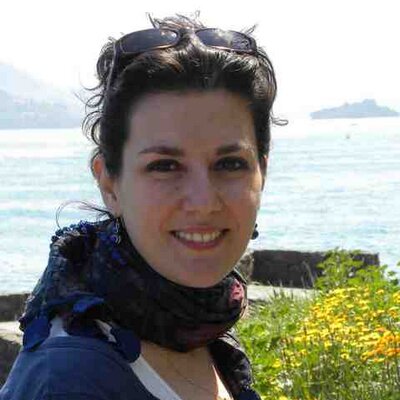Presentation of the book “Anàlisi de la presència i construcció del relat del context sociopolític de Catalunya (2010-2015) a la premsa internacional”
Presentation of the book “Anàlisi de la presència i construcció del relat del context sociopolític de Catalunya (2010-2015) a la premsa internacional”
On 23 January, at 7 pm at Palau Centelles in Barcelona. The event will involve the authors, Carles Pont and Cristina Perales, lecturers and researchers with the Department of Communication at UPF, members of the POLCOM research group, with the participation of professors Ferran Requejo, director of the IEA, and Mireia Grau, head of the Research Area of the IEA.

The event, organized by the Institut d’Estudis de l’Autogovern (IEA) and the Political Communication, Media and Democracy (POLCOM) research group at Pompeu Fabra University (UPF), will take place on 23 January at 7 pm at Palau Centelles (Baixada de Sant Miquel, no. 8, Barcelona).

The presentation of the work will involve the authors, Carles Pont and Cristina Perales, lecturers and researchers with the Department of Communication at UPF, members of the POLCOM research group with the participation of professors Ferran Requejo, director of the IEA and Mireia Grau, head of the Research Area of the IEA.
The main aim of the research presented in this book is to analyse the media coverage (information, opinion and interpretation) in the international press, taking as its starting point the Constitutional Court Ruling on the Statute of Catalonia of 28 June 2010 and the following five years up until the elections to the Parliament of Catalonia in September 2015.
The study is a collective work coordinated by the POLCOM research group and was developed thanks to a two-year competitive research grant awarded in 2015 by the IEA of the Catalan Government’s Presidential Department.
The research provides an analysis of both qualitative and quantitative content from the study of journalistic discourse in the international press of reference
Both the project and the book have involved fifteen analysts of Catalan universities, but also from other international centres in France, Portugal, Italy and Poland, most of the analysts specializing in mass media discourse analysis. The results are completed with an ethnographic work of the four correspondents in Spain of the French newspapers Le Monde and Le Figaro, North America’s The New York Times, and Germany’s Süddeutsche Zeitung.
These international journalists have become rapporteurs of the Catalan Process and so “we thought it timely to find out the facilities and hindrances they have had in getting new approaches to the conflict, direct contact with some actors and to explain the situation, which has sometimes exceeded all journalistic expectations”, say the authors of the work in its introduction.
The press is still the journalistic institution from which a society’s main opinion leaders are formed
 The research provides an analysis of both qualitative and quantitative content from the study of journalistic discourse in the international press of reference. Specifically, the study focuses on newspapers of the most industrialized countries in the world, the G7, except Japan, plus Brazil: Germany’s Frankfurter Allgemeine Zeitung and Süddeutsche Zeitung; Italy’s Corriere della Sera and La Repubblica; the UK’s The Guardian and The Daily Telegraph; France’s Le Figaro and Le Monde; North America’s The Washington Post and The New York Times; Canada’s The Globe and Mailand Toronto Star; Russia’s Izvestia and Moskovsky Komsomolets, and Brazil’s Folha de S. Paulo and O Globo.
The research provides an analysis of both qualitative and quantitative content from the study of journalistic discourse in the international press of reference. Specifically, the study focuses on newspapers of the most industrialized countries in the world, the G7, except Japan, plus Brazil: Germany’s Frankfurter Allgemeine Zeitung and Süddeutsche Zeitung; Italy’s Corriere della Sera and La Repubblica; the UK’s The Guardian and The Daily Telegraph; France’s Le Figaro and Le Monde; North America’s The Washington Post and The New York Times; Canada’s The Globe and Mailand Toronto Star; Russia’s Izvestia and Moskovsky Komsomolets, and Brazil’s Folha de S. Paulo and O Globo.
This approach “is appropriate because the media, and in particular the most important headlines of the major countries of the world, have an indisputable role in the articulation of the public sphere, particularly regarding the effect of the flow of information and the formation of the opinion of their societies with respect to the Catalan case”, state the authors.
The study presented is divided into two clearly differentiated parts: on the one hand, it offers a theoretical discussion that helps us to contextualize the different events that have been central to the development of the Catalan political Process from 2010 until 2015. On the other hand, it explains the results of the empirical analysis carried out and the main conclusions. The study of the printed press, today, remains of great value because, despite the digitalization of the various media and mass consumption based on hypermediation, the press is still the journalistic institution from which the society’s key opinion leaders are formed.
Reference:
Carles Pont, Cristina Perales (2018), Anàlisi de la presència i construcció del relat del context sociopolític de Catalunya (2010-2015) a la premsa internacional, Col·lecció Institut d'Estudis de l'Autogovern.
Cristina Perales, Twitter
Carles Pont Sorribes, Twitter
